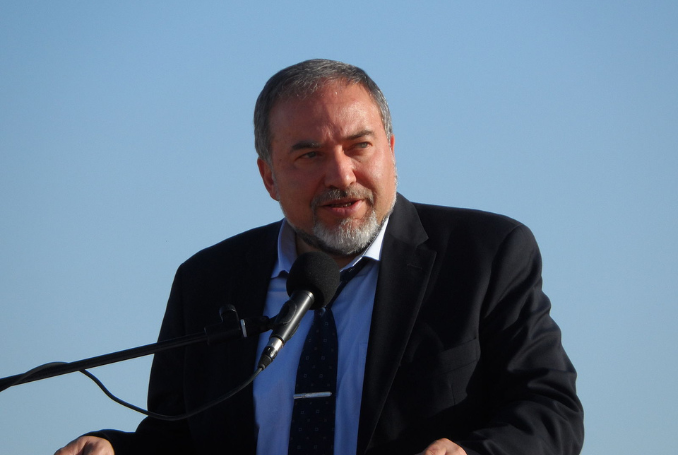
Israeli politician Avigdor Lieberman has proposed displacing Gazans to Egypt’s Sinai Peninsula as part of a post-war plan.
In a recent opinion piece published in the Israeli newspaper The Jerusalem Post, Avigdor Lieberman, leader of Israel’s far-right Yisrael Beytenu party and former defense minister, outlined his “plan” for Gaza’s future, which involves relocating a significant portion of its population to Egypt’s Sinai Peninsula.
The proposal, a rehash of other proposals introduced by current Israeli ministers, was described by Lieberman in his column as a practical solution to Gaza’s overcrowding and economic challenges.
The Gaza Strip, which has been under a hermetic Israeli siege for nearly two decades, has recently experienced an unprecedented US-funded Israeli genocide, which has killed and wounded over 160,000 people. Gaza’s population prior to the war was estimated at 2.3 million.
Lieberman argues that Sinai, with its vast and sparsely populated land, could provide a viable alternative for Gazans. “Sinai presents an efficient and practical solution for the Palestinians in Gaza, which would not entail the migration of millions of people across large distances,” he wrote. “In accordance with US President Donald Trump’s initiative, one million people from Gaza could relocate to Sinai and be set on a path toward gainful employment, economic growth, and prosperity.”
Though the idea of ethnically cleansing the population of Gaza has been pushed repeatedly by Israeli politicians since the start of the genocidal war on October 7, 2023, it received new momentum following comments by Trump calling for the relocation of Gaza and for the US to take “ownership” of the devastated Strip.
In his column, Lieberman emphasized that the plan would rely on “voluntary” movement, stating, “The sole requirement for such a solution is to insist on the principle of freedom of movement. Claims that voluntary emigration of people from Gaza is in any way objectionable—morally or politically—are disingenuous and hypocritical, given the open arms with which refugees have been accepted internationally from other combat arenas, such as Syria or Ukraine.”
Egypt’s Role in the Plan
Lieberman’s proposal places significant responsibility on Egypt, urging it to open the Rafah border and facilitate the relocation. He argues that Egypt’s dependence on US and Israeli support should compel it to cooperate. “Without generous American financial and security assistance, it is doubtful whether the current Egyptian regime could function or even survive,” he wrote.
He also criticized Egypt’s current role in Gaza, accusing it of perpetuating the crisis. “Egypt collaborates completely with Hamas. All of the positions they convey in the context of mediation efforts are coordinated with Hamas,” he claimed. “In practice, Egypt’s deployment in Sinai is well in excess of that permitted by the security annex of the Camp David Accords.”
Lieberman’s plan calls for a broader regional framework, suggesting that the Arab League could oversee Gaza’s administration. “The overall responsibility for the Gaza Strip should rest with Egypt, as it did prior to 1967, under the auspices of an Arab League mandate,” he wrote. “These are 22 Arab countries that can back the initiative both financially and from a military and organizational standpoint.”
Following 15 months of fighting, and despite the massive destruction, the Israeli army has failed to defeat Gaza and was forced to retreat from various areas inside the Strip. The return to the calls for collective displacement is seen as a direct result of the Israeli defeat on the battleground.
Palestinians, along with Egypt and many Arab and international political players, vehemently reject the calls for ethnically cleansing Palestinians, insisting that Gaza can be rebuilt in a matter of three years without the need to relocate the population.
(The Palestine Chronicle)









Be the first to comment